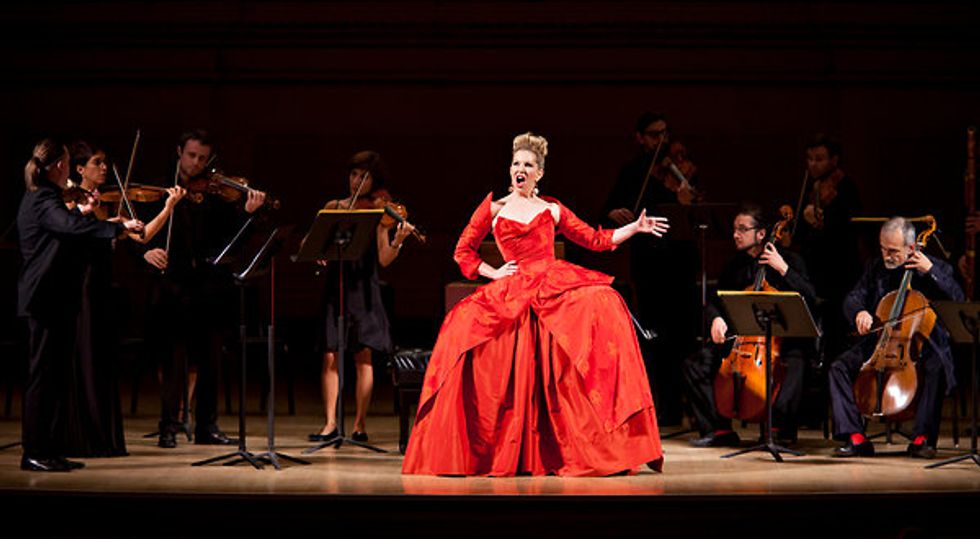Just like every other college student, I've been asked, "What are you studying?" When I respond with, "Operatic vocal performance," I quite often get the response, "Oh, you have an easy major!" While I am always a little bit agitated by this statement, I always do my best to be polite and to take the opportunity to inform them of what it really means to study music.
Music history is the history of mankind.
Believe it or not, studying music is the same as studying the history of the human race. Think about how you feel when your favorite rock ballad, pop tune, or country song comes on the radio. Those same feelings of melancholy, love, nostalgia, and wonder are the feelings that people have felt ever since the ancient humans started making music. Music has always reflected the values of the people, the events of the time, and any sort of social or political uprising. Music is a direct product of human emotion. From humanism to war propaganda, music has been right at the heart of it all.
Music is communication.
As a vocal major, you are responsible for learning how to speak and pronounce English, French, German, and Italian. On top of that, there is a rise in the amount of operas being performed in Eastern European languages, such as Russian or Czech. Spanish is quite often thrown into the mix as well, and I have even sung in several different African dialects, Japanese, and Portuguese. It is the singer's responsibility to communicate the feelings, motivations, intentions, and thoughts of a character through their face, pronunciation, body language, and vocal color (the character of your voice) all while maintaining proper vocal technique.
Music is math and science mixed together.
There's a reason why Western music sounds the way it does. Formulas and combinations of sounds in music began developing in the ancient civilizations and are still developing to this day. Harmonics has a big role to play in music as well. Pythagorus-yes the same old guy who came up with the famous theorem a2 + b2 = c2-came up with the ratios that govern pitch. In addition, universities such as the University of Paris developed musical innovations in the Medieval Era and prestigious academic institutions continue to do so to this day.
Opera is theatre.
We learn stage craft as well! Opera singers learn all of the ins and outs of theatre and what it takes to convey characters. We get to know characters and, quite often, play them over and over agin. With trends today leaning toward live streaming operatic performances, there's more pressure than ever on performers to be not only a good singer but an amazing actor as well. We also learn how to conduct ourselves professionally in a rehearsal setting. This includes backstage etiquette, how to work with others, and how to take dramatic criticism.
Singing is a physical activity.
Most people are unaware of the core strength and muscular manipulation, or should I say relaxation, it takes to sing operatic roles. When the average person speaks, they do it in a way that isn't conducive to proper singing technique. First, you have to worry about taking in a breath that isn't as forced or constricted. Second, you have to engage the muscles of your core. Simultaneously, you have to open your throat, lift your soft palate, and relax your tongue. If any of these things are not happening, your sound will be affected and you could possibly be doing damage to your vocal chords. There are even more technical aspects of singing that I'm not even aware of, but if you don't have all these things in check, there's no way you will be heard when an orchestra is added underneath you.
Studying Opera doesn't just mean learning how to sing. It means learning about what it is to be human. It's about learning the history of us. It's about learning what sounds we like, and what sounds we don't like. It's about learning how to use the voice to its fullest potential. It's mesmerizing, and it's frustrating. It's fun, and it's exhausting. It's what I love to do and what I want to share with the world! So, no, it isn't an easy major but it is a fulfilling one!






 The minimum wage is not a living wage.
StableDiffusion
The minimum wage is not a living wage.
StableDiffusion
 influential nations
StableDiffusion
influential nations
StableDiffusion











